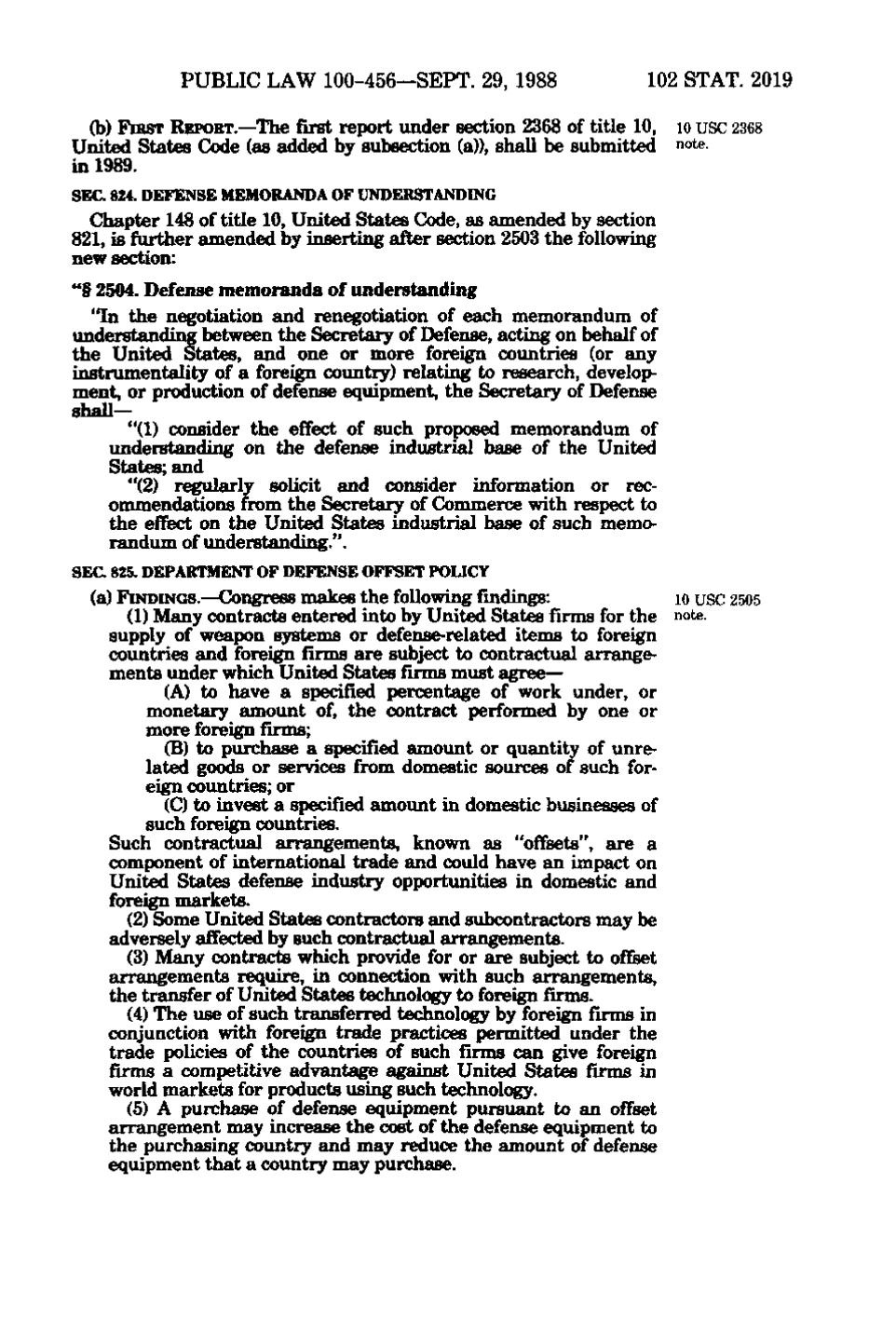PUBLIC LAW 100-456—SEPT. 29, 1988
102 STAT. 2019
(b) FIRST REPORT.—The first report under section 2368 of title 10, lo use 2368 United States Code (as added by subsection (a)), shall be submitted note. in 1989. SEC. 824. DEFENSE MEMORANDA OF UNDERSTANDING
Chapter 148 of title 10, United States Code, as amended by section 821, is further amended by inserting after section 2503 the following new section:
- '§ 2504. Defense memoranda of understanding
"In the negotiation and renegotiation of each memorandum of understanding between the Secretary of Defense, acting on behalf of the United States, and one or more foreign countries (or any instrumentality of a foreign country) relating to research, development, or production of defense equipment, the Secretary of Defense shall— "(1) consider the effect of such proposed memorandum of understanding on the defense industrial base of the United States; and "(2) r ^ u l a r l y solicit and consider information or recommendations from the Secretary of (Ilommerce with respect to the effect on the United States industrial base of such memorandum of understanding.". SEC. 825. DEPARTMENT OF DEFENSE OFFSET POLICY
(a) FINDINGS.—CV)ngress makes the following findings: 10 USC 2505 (1) Many contracts entered into by United States firms for the note. supply of weapon systems or defense-related items to foreign countries and foreign firms are subject to contractual arrangements under which United States firms must agree— (A) to have a specified percentage of work under, or monetary amount of, the contract performed by one or more foreign firms; (B) to purchase a specified amount or quantity of unrelated goods or services from domestic sources of such foreign countries; or (C) to invest a specified amount in domestic businesses of such foreign countries. Such contractual arrangements, known as "offsets", are a component of international trade and could have an impact on United States defense industry opportunities in domestic and foreign markets. (2) Some United States contractors and subcontractors may be adversely affected by such contractual arrangements. (3) Many contracts which provide for or are subject to offset arrangements require, in connection with such arrangements, the transfer of United States technology to foreign firms. (4) The use of such transferred technology by foreign firms in conjunction with foreign trade practices permitted under the trade policies of the countries of such firms can give foreign firms a competitive advantage against United States firms in world markets for products using such technology. (5) A purchase of defense equipment pursuant to an offset arrangement may increase the cost of the defense equipment to the purchasing country and may reduce the amount of defense equipment that a country may purchase.
�
